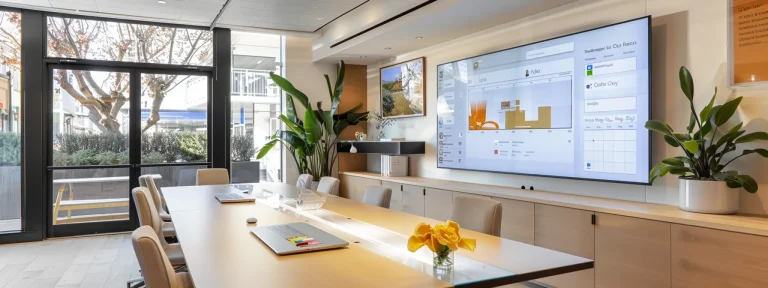Heads Up: When you purchase through links on our site, we may earn an affiliate commission at no cost to you.
When people talk about building wealth, real estate is often the unsung hero behind the scenes. Buying an investment property isn’t just about bricks and mortar — it’s about building cash flow, stacking assets, and creating real financial independence.
But jumping into real estate without a plan is like sailing without a compass. If you want your investment to deliver real returns — not just headaches — you need the right strategies, the right team, and a clear financial roadmap. This guide will teach you everything you need to know to buy smarter, minimize risk, and maximize profit.
Ready to unlock your wealth? Let’s get to it.
Key Takeaways
- Buying an investment property is a proven path to building long-term wealth and passive income.
- Setting a realistic budget and preparing for all hidden expenses helps protect your cash flow from surprises.
- Choosing the right location, property type, and financing method is crucial to maximizing return on investment.
- Building a strong investment team—including a real estate agent, loan officer, and accountant—will result in smoother deals and fewer mistakes.
- Carefully tracking income, expenses, and cash flow helps you stay profitable year after year.
- Avoid common mistakes, such as overleveraging, ignoring repair costs, or buying without researching market demand.
Why Buying an Investment Property Can Transform Your Wealth

Real estate is one of the few investments that can earn you passive income, appreciate over time, and offer generous tax advantages — all at once. Unlike stocks that might only give you a dividend, investment properties can simultaneously deliver monthly cash flow and grow your equity.
Here’s the magic:
- Your tenants essentially pay your mortgage loan through rent.
- Over time, your property (hopefully) increases in market value.
- You build home equity while enjoying a monthly positive net income.
It’s like getting paid today while someone else is financing your retirement.
Property appreciation, rental income, and smart management can add up to a substantial nest egg. Whether you want to flip for quick profits or build a rental portfolio for long-term stability, buying the right investment property is a proven way to create generational wealth.
Plus, real estate offers stability that volatile stock markets often can’t. While property values can dip, the demand for housing, especially affordable rentals, rarely disappears. When you play it right, your investment property can be a reliable wealth-building machine for decades.
Setting a Budget: Understanding Your Financial Limits
Before you start touring open houses or scrolling listings, you need to know exactly what you can afford — and just as importantly, what you can comfortably manage. Overextending yourself is one of the biggest ways investors end up in financial trouble.
Start by looking at:
- Your available cash for a down payment (most lenders require 15–25% for investment properties).
- Your credit score and credit history directly impact your interest rate and loan terms.
- Your current income and existing debt obligations.
Lenders will scrutinize your debt-to-income ratio to ensure you can realistically afford another mortgage. They’ll also want to verify a steady employment history and proof of available funds for reserves.
Key Factors That Impact Your Investment Budget
Several hidden costs can catch new investors off guard. Make sure you factor in:
- Down Payment: Unlike a personal home loan, you’ll often need a larger down payment (15–25%) for an investment property mortgage.
- Property Tax: Taxes vary widely depending on location, but they’re unavoidable. Higher taxes can significantly reduce cash flow.
- Insurance: Landlord insurance policies are pricier than homeowner policies. Depending on the risk, some properties may also need flood or earthquake insurance.
- Repairs and Renovations: Even a “move-in ready” property might need updates to maximize rent or appeal to buyers.
- Property Management: If you’re not planning to manage tenants yourself, expect to pay 8–10% of monthly rent to a property management company.
Skipping a detailed budget can lead to unpleasant surprises, which can harm profits. Smart investors plan for every possible expense before they ever sign on the dotted line.
- Instant feedback
- Valuable insights
- Actionable tips
Choosing the Right Investment Property: Key Criteria

Not all properties are created equal when it comes to investing. You could buy the prettiest home on the block and still lose money if the numbers don’t work.
The best investment properties share three traits:
- They generate positive cash flow.
- They are located in high-demand rental areas.
- They have manageable maintenance and overhead costs.
Here’s what to look for when evaluating your next opportunity:
- Location: Pick neighborhoods with strong job markets, good schools, and low crime rates. Market demand drives rental prices and vacancy rates.
- Rentability: Does the property appeal to renters in that market? If not, even a cheap mortgage won’t save you.
- Cash Flow Potential: After paying your mortgage loan, insurance, property taxes, and expenses, are you still in the black?
- Condition: Big repairs like roofs, HVAC, and foundation work can quickly drain your profits. Look for structurally sound properties, even if they need cosmetic updates.
- Exit Strategy: Always plan your escape route — whether it’s flipping, selling after appreciation, or long-term renting.
Buying with a clear investment strategy consistently outperforms buying emotionally.
Different Property Types to Consider
When purchasing an investment property, you have several options — each with its own pros and cons.
- Single-Family Homes: Easier to manage, higher resale demand, but if vacant, you have zero income until re-rented.
- Duplexes and Triplexes: More units mean more income streams, and you can live in one unit while renting the others (hello, house hacking).
- Condos and Townhomes: Lower maintenance, but be aware of hefty HOA fees that can eat into your return on investment.
- Vacation Rentals: Think Airbnb. They have great cash flow potential but require active management, strong marketing, and an understanding of local regulations.
Different properties fit different investment strategies. Know your goals before choosing your vehicle.
Financing Options for Buying an Investment Property

Unless you’re sitting on a mountain of cash, you’ll need funding to make your real estate dreams a reality. The good news? You have more options than you might think.
Traditional routes include:
- Conventional Mortgage Loans: Best for buyers with strong credit scores and steady income.
- VA Loans and FHA Loans: Sometimes available for multi-family units if you plan to live in one unit.
- Home Equity Loans: Tap into the home equity you’ve already built to fund a new property purchase.
- Home Equity Lines of Credit (HELOCs): Flexible borrowing option based on your home’s value.
- Refinancing: Pull out cash from an existing home through cash-out refinancing.
Alternative financing paths include:
- Hard Money Loans: Fast funding, less strict underwriting, but higher interest rates and short terms.
- Seller Financing: You negotiate terms directly with the seller — often less paperwork, more flexibility.
- Crowdfunding: Platforms that pool investments from multiple people to buy larger properties.
- Real Estate Investment Trusts (REITs): Investing in large-scale property portfolios without buying physical properties yourself.
Each option comes with different risks, costs, and qualification standards. The right choice depends on your credit, timeline, and investment strategy.
Quick Comparison Table
| Financing Option | Best For | Key Features |
|---|---|---|
| Conventional Loan | Buyers with strong credit | Lower rates, strict underwriting |
| Home Equity Loan | Homeowners with existing equity | Lump sum, fixed interest |
| Hard Money Loan | Flippers | Fast funding, high rates |
| Seller Financing | Flexible buyers and sellers | Negotiable terms, faster closings |
| Crowdfunding | Small-scale investors | Low minimums, passive investment |
Choosing the wrong loan can drain your profits. Always shop around, get pre-approved early, and understand your rate of return before signing anything.
Building a Team: Why You Need a Good Real Estate Agent and More

Trying to handle everything alone when buying an investment property is like trying to build a house with your bare hands — slow, painful, and usually disastrous. Smart investors build a strong, reliable team to maximize their chances of success.
A seasoned real estate agent can help you:
- Find hidden gem properties.
- Negotiate better purchase prices.
- Avoid neighborhoods with hidden risks.
But the agent is just the start.
Essential People on Your Investment Team
Here’s who you’ll want by your side:
- Real Estate Agent: Guides property search and negotiations.
- Loan Officer: Helps you explore financing options and navigate underwriting.
- Accountant: This person assists with tax returns, income tax strategies, and setting up proper accounting systems for deductions, such as depreciation.
- Attorney: Review contracts and ensure legal compliance, particularly for more complex transactions such as seller financing.
- An inspector Uncovers hidden property issues that could impact your investment strategy.
- Property Manager (optional): This person handles tenant issues, lease agreements, and maintenance, providing hands-off involvement if desired.
Building the right team reduces financial risk, saves money, and—just as important—saves hours of stress.
Managing Cash Flow and Expenses
Cash flow is the lifeblood of real estate investing. You might love the property, but if it loses money every month, it’s not an investment—it’s a liability.
To stay profitable, you need to track:
- Rental income is received each month.
- Expenses like mortgage payments, property taxes, insurance, and maintenance.
- Vacancy periods where no rent comes in.
Many investors recommend keeping a “maintenance reserve” — around 10–15% of gross rent — to cover unexpected repairs. You’ll also want a reserve for bigger surprises like roof replacements or new HVAC systems.
Sample Monthly Investment Property Budget Table
| Category | Estimated Cost |
|---|---|
| Mortgage Payment | $1,200 |
| Property Tax | $250 |
| Insurance | $100 |
| Maintenance Reserve | $150 |
| Property Management Fees | $200 |
| Vacancy Reserve | $150 |
| Total Monthly Expenses | $2,050 |
If your monthly rent is $2,400, that leaves you with $350 of positive cash flow — exactly what you want to see.
Tracking these numbers consistently with good accounting practices (or reliable property management software) ensures you know exactly where you stand financially, month after month.
Understanding Risk and Return on Investment (ROI)

Real estate investing isn’t a sure thing — it’s a balancing act between risk and reward. Every property carries the potential for big gains… or big problems.
That’s why calculating your expected return on investment (ROI) before making a purchase is crucial. A strong ROI means your property generates enough net income after all expenses, including property taxes, mortgage payments, and maintenance, to justify the upfront cost and ongoing effort.
Basic ROI Formula:
ROI = (Annual Net Income ÷ Total Investment) × 100
Example: If you make $12,000 a year in net rental income and invest $120,000 total (down payment + closing costs + renovation costs), your ROI is 10%.
Tips to Reduce Risk
Managing financial risk upfront makes a big difference. Here’s how you can play smarter:
- Diversify Your Portfolio: Own properties in different markets to avoid regional economic downturns.
- Budget for Vacancies: Always assume your property will be vacant 1–2 months a year.
- Get Proper Insurance: Landlord policies, liability protection, and possibly lenders’ mortgage insurance for higher-risk loans.
- Screen Tenants Thoroughly: Good tenants protect your property and your income stream.
- Use Legal Protections: Solid lease agreements and clear eviction procedures minimize disputes.
In real estate, hope isn’t a strategy — planning is.
Top Mistakes to Avoid When Buying an Investment Property

It’s easy to get swept away by glossy listing photos and dreams of passive income. However, even experienced investors can fall into pitfalls if they’re not cautious.
Here are some classic mistakes that can drain your profits and derail your goals:
- Overleveraging Yourself: Taking on too much debt without sufficient cash reserves can leave you vulnerable during economic downturns or market fluctuations.
- Underestimating Repairs and Renovations: That “small fix” could quickly turn into a five-figure expense.
- Ignoring Tenant Quality: A bad tenant can cost you more in damages, evictions, and lost rent than you think.
- Failing to Research the Market: Buying in a declining area, ignoring local rental demand, or missing hidden costs (like high property taxes) can kill your cash flow.
- Lacking an Exit Strategy: Whether you plan to flip, refinance, or hold for the long term, you need a clear path for how and when you’ll cash out.
Real estate rewards those who approach it like a business, with solid research, strong finances, and a clear investment strategy.
Frequently Asked Questions
How much money do I need to start investing in a property?
Most lenders require a down payment of at least 15–25% for an investment property, plus reserves for property taxes, insurance, and potential repairs.
What is the best type of loan for buying an investment property?
A conventional mortgage loan is the most common type of loan for investment properties. Still, depending on your strategy, options like home equity loans and hard money loans are also popular.
Should I manage my rental property myself or hire a property manager?
If you want hands-off investing or live far from the property, hiring a property management company can save time and reduce headaches, despite the extra fee.
How do I calculate if an investment property is a good deal?
Use the cash flow formula and calculate your ROI. A positive monthly income after all expenses, combined with a strong rate of return (typically 8% or more), signals a good investment.
Can I use my home equity to buy an investment property?
Yes, you can use your home equity, which you can access through a home equity loan or home equity line of credit (HELOC), to fund a new investment.
Conclusion
Buying well comes down to simple habits you repeat. Define your buy box, line up financing, and run the numbers consistently every time. Walk a lot of properties. Keep solid reserves. Screen tenants thoroughly and review cash flow on a monthly basis. A steady process beats lucky timing.
Stay disciplined on offers and exits. Track what’s working in your market, adjust rents and expenses, and keep your team close—agent, lender, inspector, accountant, attorney. Do this week after week, and the portfolio grows without drama.
If you want consistent deal flow while you shop and underwrite, we can turn your Carrot site into a pipeline of direct-to-owner leads with one-market exclusivity—request a market-specific plan and we’ll map your next 90 days with clear deliverables and timelines.















